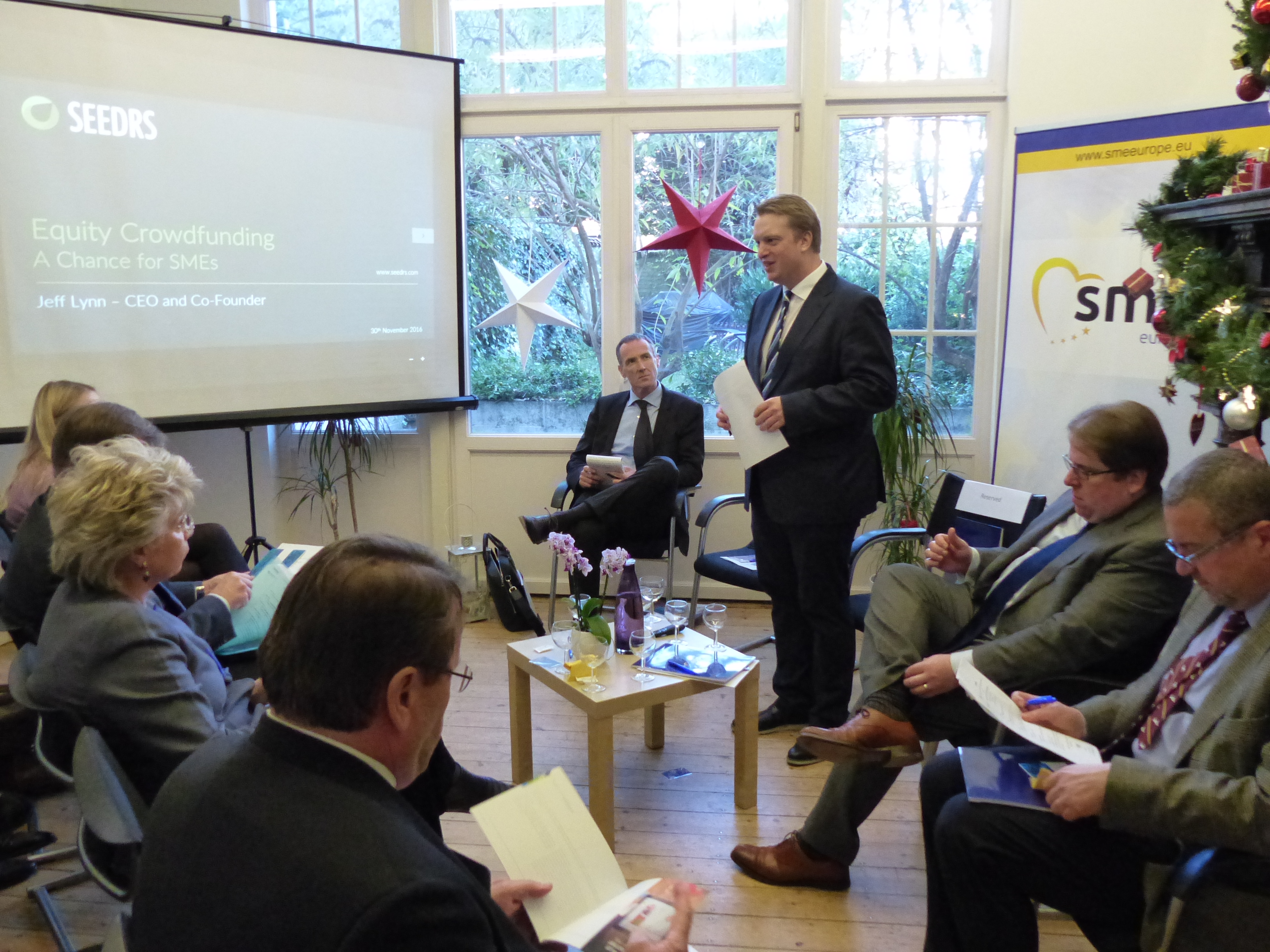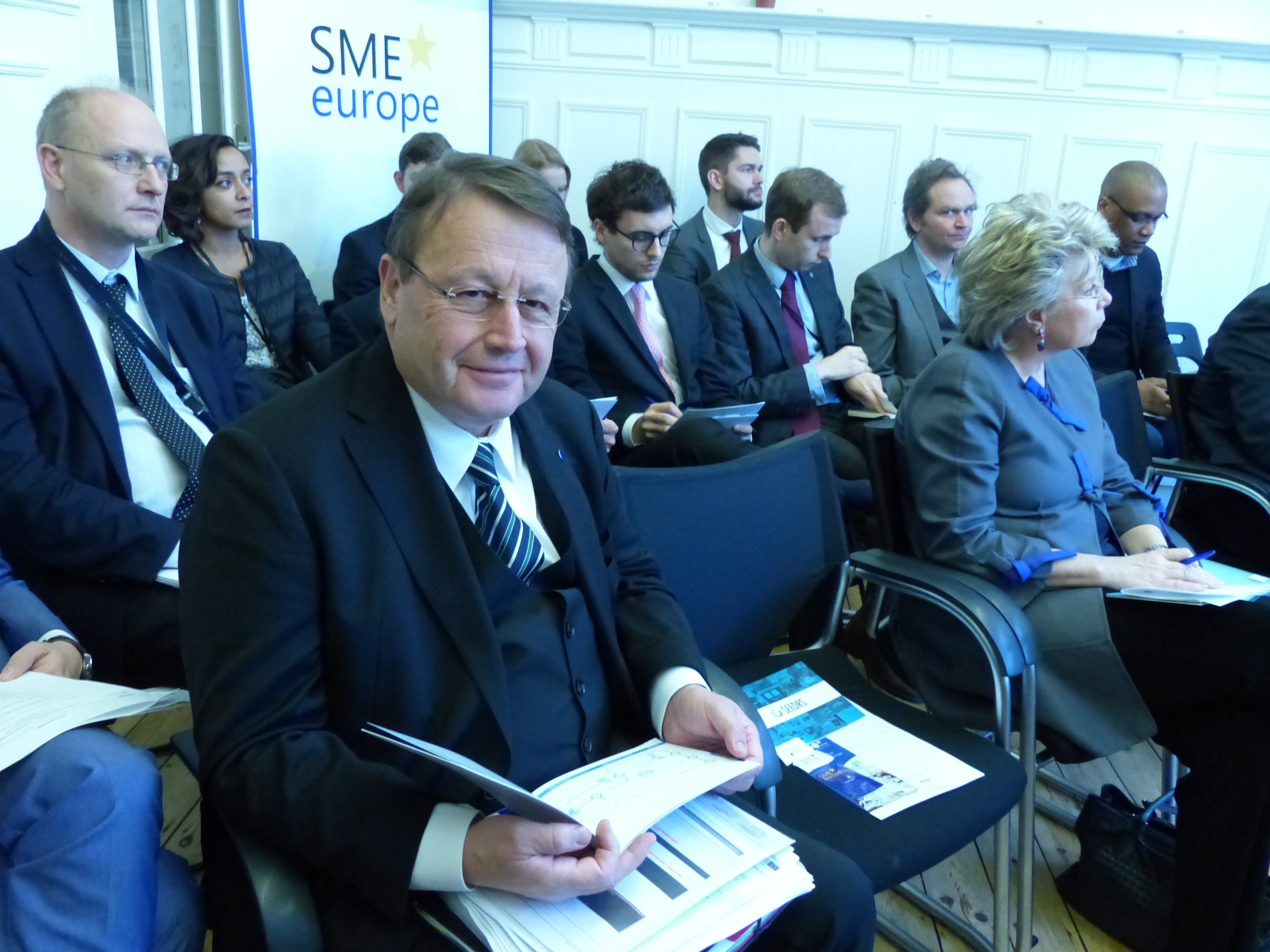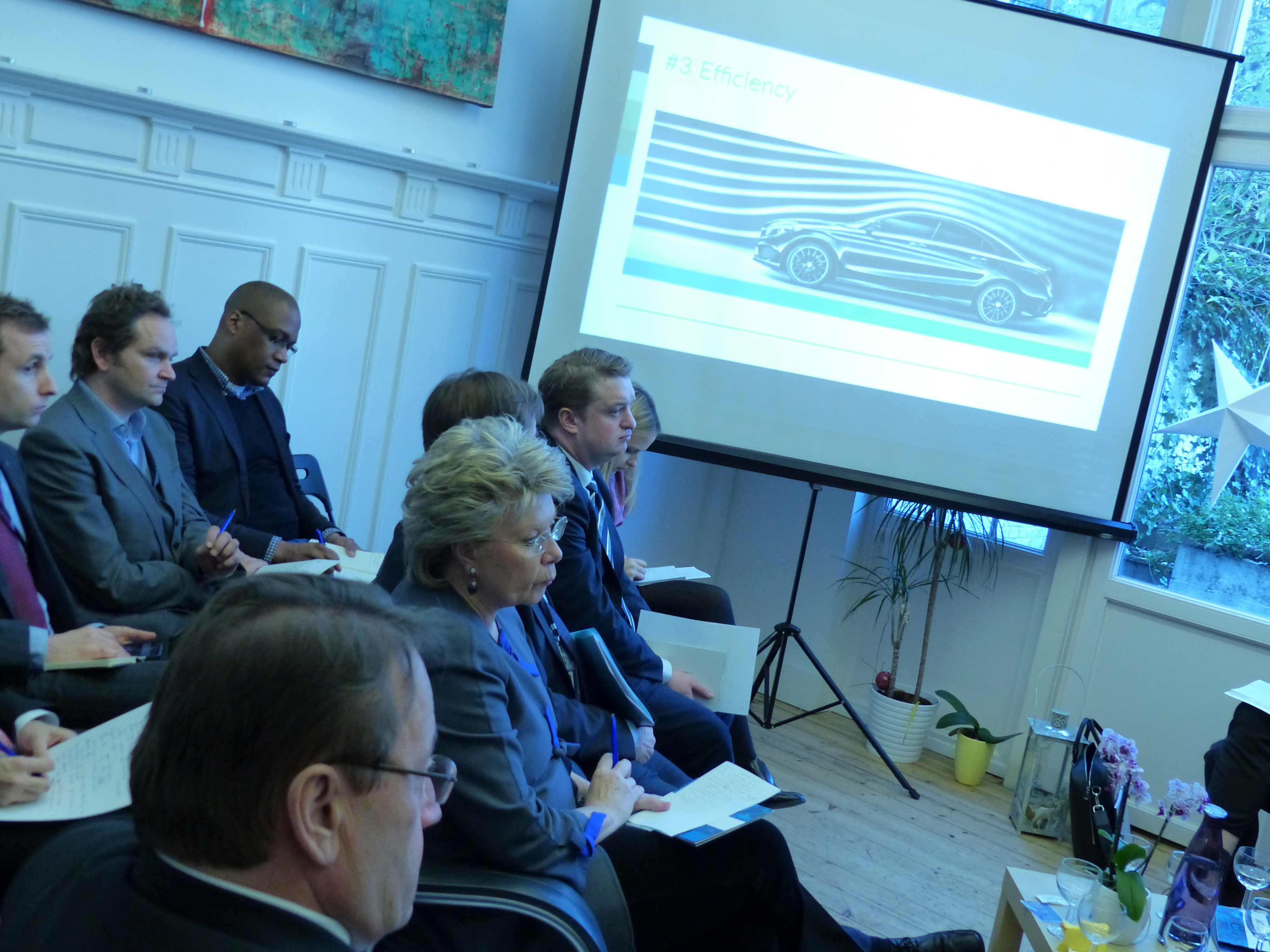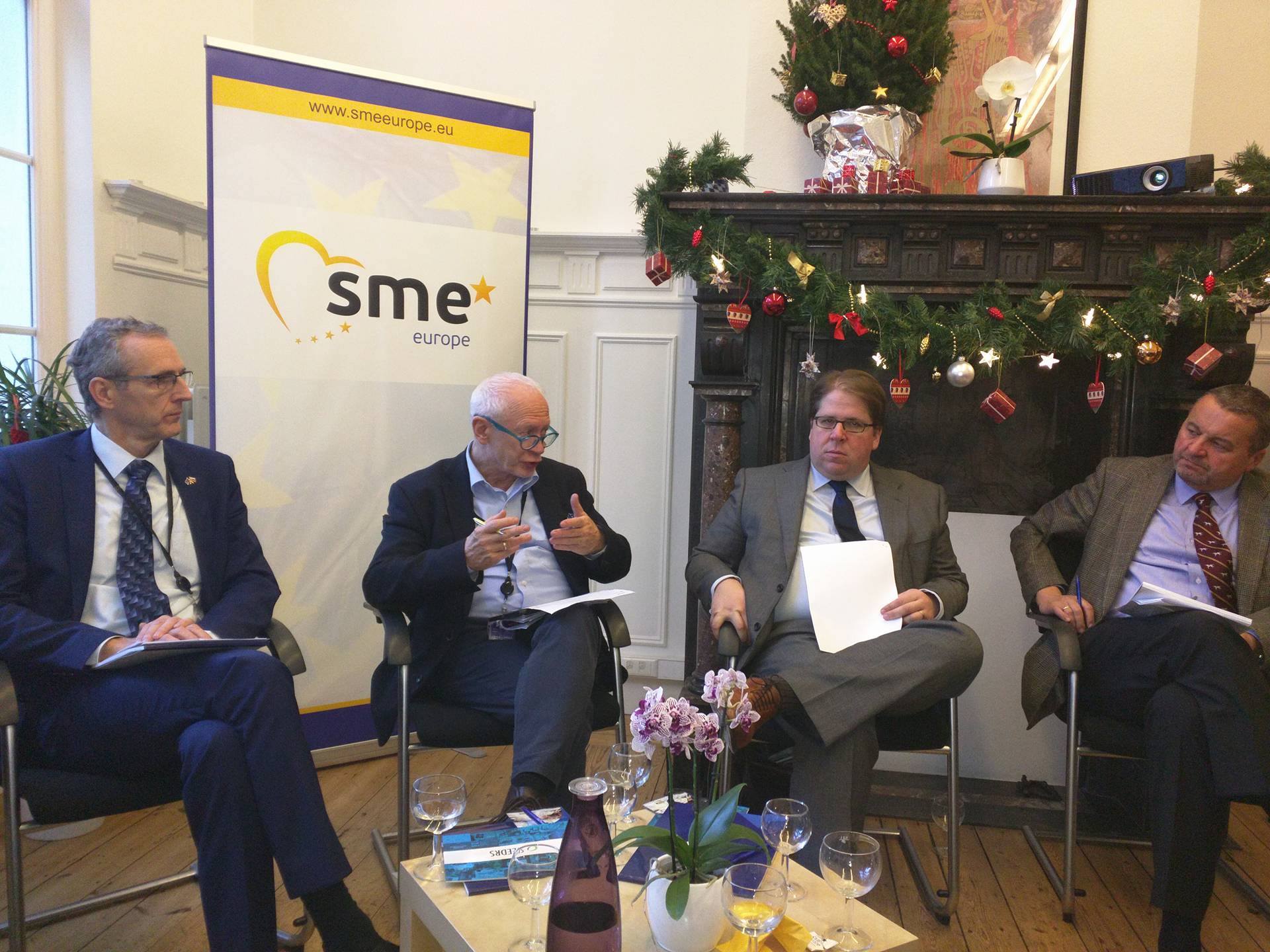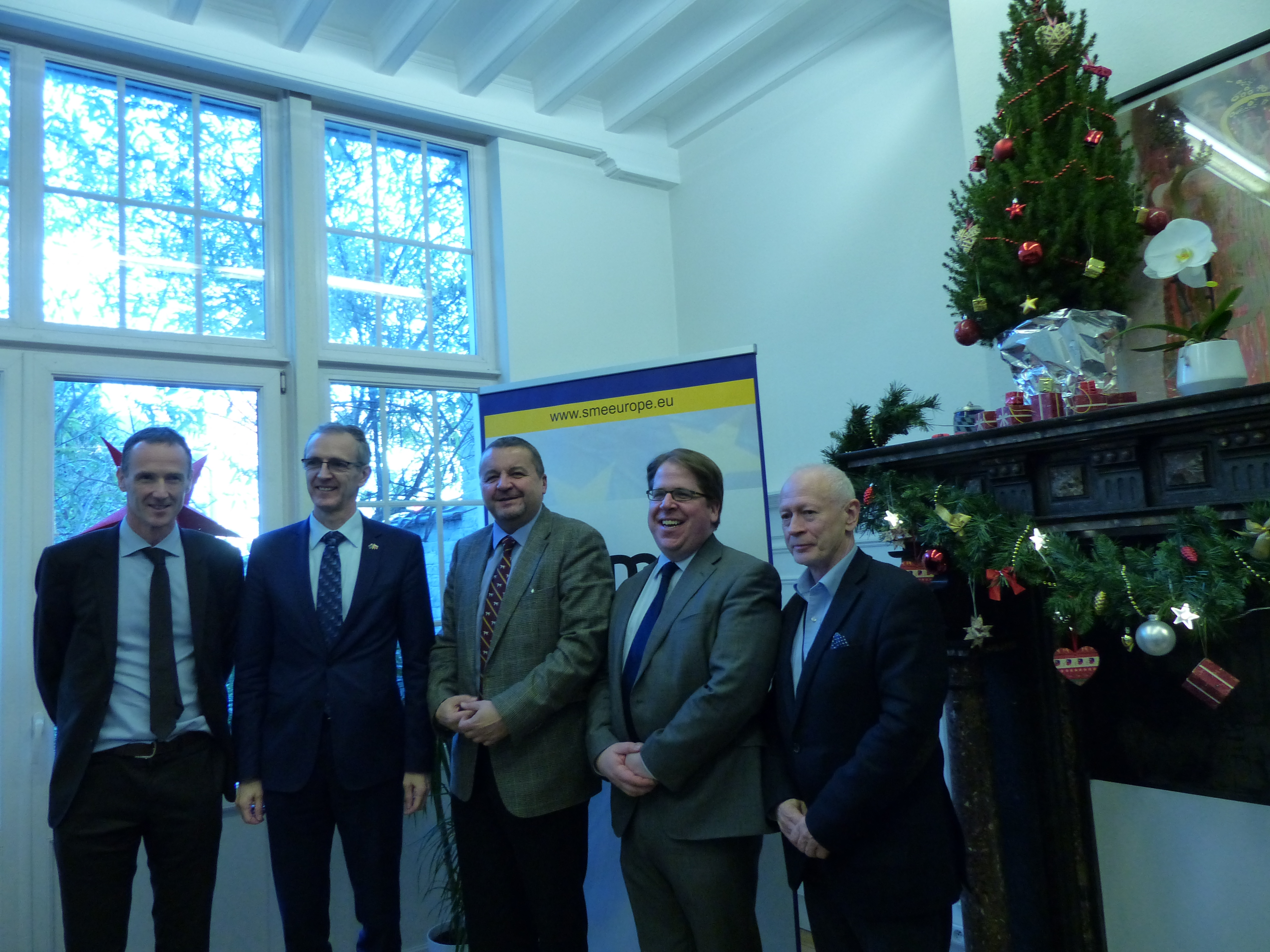Equity Crowd Funding – A Chance for SMEs?
On 30th November 2016 SME Europe of the EPP and Friends of SMEs held a Working Lunch on “Equity Crowd Funding – A Chance for SMEs?”. The event took place in the House of Europe, Rue de Pascale 22, from 12:15-14:00 and was moderated by MEP Michal Boni, Committee on Civil Liberties, Justice and Home Affairs, Vice-President of SME Europe and Chair of the Working Group Start-Ups. MEP Bendt Bendtsen, Committee on Industry, Research and Energy, President of SME Europe, Chair of the SME Working Group for Energy, held the opening. Dr. Horst Heitz, Executive Director of SME Europe, welcomed the guests and speakers to this event. The discussion panel was comprised of MEP Ivan Stefanec, Committee on the Internal Market and Consumer Protection, Vice-President of SME Europe and Chair of the Working Group for Administrative simplification,Niall Bohan, Head of Unit in the European Commission DG FISMA for Capital Markets Union, Gerhard Huemer, Director of UEAPME, and Jeff Lynn, CEO and Co-Founder of Seedrs.
Dr. Heitz kicked off emphasising the importance of funding for SMEs and the need to support their development as closely as possible. Afterwards he welcomed the guests and eloquently introduced all panelists.
MEP Bendt Bendtsen clarified that access to finance is an issue for every SME and its best implementation a top priority. Equity crowd funding holds many opportunities for investors and SMEs by offering a broader range of access. This form of funding could serve as a great supplement. He ended his speech with opening the floor for the panelists.
Jeff Lynn started the discussion by introducing three different types of crowdfunding, the first one being reward based, the second being one linked to debt by lending and the last one being equity based by investing in shares. He explained that venture capital is limited to certain investors, while equity crowd funding could tap a wider range of investors. In addition, this type of funding is more efficient, faster and helping to involve and connect both investors and customers. He outlined that cross border investment is unique in the European Union but only works partially as it is an issue of 28 different member state regimes. He explained that these investments between countries are needed as equity crowd funding can only grow in wealthy economies. Therefore it will prosper in Germany, but not in Slovakia or Lithuania, if there is not enough capital.
Niall Bohan explained that there is a big focus on these forms of finance because equity crowd funding could serve as a vital instrument for SMEs. He emphasised that there is an opportunity for SMEs to grow, but pointed out the high risks involved, when using this type of finance. Therefore equity crowd funding needs to be developed in a sensible way. In addition, Mr. Bohan explained that the difficulty when doing business crossborders is the need to inform the investors in their individual languages, which is necessary as people need to fully understand this type of financial instrument. Furthermore, he emphasised that we need to make the market stronger, credible and trustworthy by pooling loans in a securitisation vehicle and by avoiding the random distribution of these loans.
Gerhard Huemer outlined that when SMEs are attempting to run riskier products, they have a difficulty to finance these operations with bank finance. This leads to limited opportunities and hinders the development of the national market. There is no need for a European solution, the focus should be on the Regional level development. He stated that securitisation for SMEs will not work without public support and outlined the dangers when shares from family businesses are distributed to unknown investors. Therefore the main problem for SMEs, when using the equity crowd funding, is the complicated investor structure. Its easier if you know the people which invested in your company. In addition, the high risks of this type of funding should be taken into consideration, as these lead to a high failure rate.
MEP Ivan Stefanec stated that many SMEs are not aware of equity crowd funding with its risks and opportunities. Therefore a promotion of this form of finance is needed in Europe, next to a safe implementation. This requires a new set of rules to create opportunities for this new form of finance.
The discussion was concluded with the need for a step by step recognition process. The issues need to be harmonized but with local identities taken into consideration. The common responsibility is education and promotion to create a better and safer environment for equity crowd funding.

